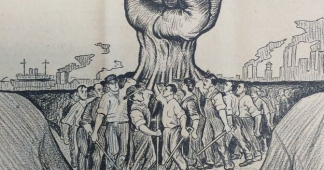by Ricardo Antunes
Apr 01, 2018
In recent decades, the spread of information technology, industrial automation, and other innovations has inspired visions of a coming “postindustrial society of services,” in which the proletariat as it existed in earlier eras would effectively disappear. However, even a cursory survey of the reality of contemporary global labor markets belies this myth. The emergence of a new class of educated, salaried workers in high-tech fields is predicated on the increasing invisibility of workers employed in sectors and settings ranging from call centers and telemarketing to hotels and cleaning companies to retail, fast food, and care services. The great majority of these jobs are precarious in one way or another: seasonal, part-time, temporary, informal, or freelance, with little or no security or benefits.
An emblematic example is the zero-hour contract, a perverse form of employment that thrives in the United Kingdom and elsewhere. Instead of working a fixed number of hours or shifts, zero-hour employees must remain perpetually at their bosses’ disposal, waiting for a call. Once they receive this call, they are paid only for the time they actually work, and not for the time—days, weeks, even months—spent waiting. Information technology firms in particular have embraced this method of complete flexibilization of labor, which serves at once to make workers continually available for exploitation and to further normalize the regime of precariousness, leaving workers with ever fewer protections.
Read more at monthlyreview.org










